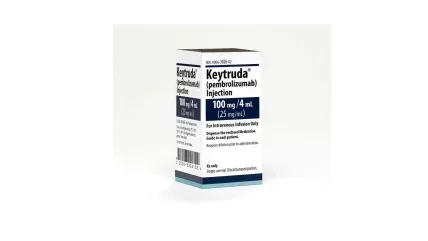
Exelixis and Merck, known as MSD outside the US and Canada, have announced a clinical development collaboration to assess new investigational combination therapies for head and neck cancer and renal cell carcinoma (RCC).
Under the deal, both partners will evaluate the combination of Exelixis’ investigational tyrosine kinase inhibitor, zanzalintinib, with Merck’s anti-PD-1 therapy, Keytruda (pembrolizumab). This will take place in a Phase 3 trial for head and neck squamous cell carcinoma (HNSCC).
Additionally, zanzalintinib will be tested with Welireg (belzutifan), Merck’s oral HIF-2α inhibitor, in a Phase 1/2 trial and two Phase 3 trials for RCC.
Exelixis chief medical officer and product development & medical affairs executive vice president Amy Peterson said: “This collaboration underscores our belief in zanzalintinib’s potential to drive patient benefit in combination with immunotherapy or targeted therapy in HNSCC and RCC indications that have unmet clinical need.
“Keytruda and Welireg are approved therapies that have led to improved outcomes for some cancer patients, and we are pleased to collaborate with Merck’s clinical development organisation to evaluate the potential of these therapies in combination with zanzalintinib.
“This collaboration paves the way for further zanzalintinib development in RCC in a pragmatic manner.”
As per the terms of the collaboration, Merck will supply Keytruda for Exelixis’ Phase 3 STELLAR-305 trial in untreated PD-L1 positive recurrent or metastatic HNSCC.
Merck will also sponsor a Phase 1/2 trial and two Phase 3 trials for RCC. Merck will fund one of the Phase 3 studies, while Exelixis will co-fund the Phase 1/2 trial and the other Phase 3 study.
US-based Exelixis will supply zanzalintinib and cabozantinib. On the other hand, Exelixis retains all global commercial and marketing rights to zanzalintinib.
Merck Research Laboratories global clinical development, oncology senior vice president and head Marjorie Green said: “We look forward to working with our colleagues at Exelixis to advance these clinical trials.
“Merck remains committed to building upon the progress made to date by strategically evaluating the potential of new combination regimens to improve outcomes for more patients.”
In August this year, Exelixis announced that its supplemental New Drug Application (sNDA) for cabozantinib (Cabometyx) has been accepted in the US for patients with advanced neuroendocrine tumours.






